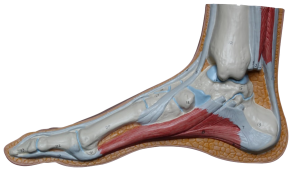The days are getting longer and warmer which is the perfect time for runners to come out of hiding or you may just be ready for a new exercise challenge. Follow these tips to help you achieve a successful and positive return to running and help you to be aware of the injury warning signs.
1: Start slow and build slowly.
One of the simplest ways to prevent injuries is to build your running mileage gradually. By slowly increasing the time we run for allows our muscles, tendons and bones to adapt to the new movement. If we increase the “load” which might be the time or speed we are running for too quickly our bodies haven’t had time to get stronger – similar to how when you go to the gym you don’t start by lifting the heaviest weight but slowly build up to it.
Using a walk jog program like the Couch to 5km is a great guide. Similarly, the 10% rule is also helpful. Science has shown that if we build running mileage by only 10% each week the risk of injury is significantly less.
2: Stop when things hurt!
 Our bodies are remarkably clever at telling us when to take it a little easier – the challenge is reminding ourselves to listen to those little pearls of wisdom. The “no pain is gain” is a slogan that keeps physios busy as humans have a great capacity to ignore injuries for extended periods of time only visiting the physio when things get really bad!
Our bodies are remarkably clever at telling us when to take it a little easier – the challenge is reminding ourselves to listen to those little pearls of wisdom. The “no pain is gain” is a slogan that keeps physios busy as humans have a great capacity to ignore injuries for extended periods of time only visiting the physio when things get really bad!
Shin splints and lower limb tendon injuries are the most common injuries we see in new runners and are often caused by building running mileage too quickly, poor footwear or biomechanics. Shin splints are characterised by a localised dull ache on the inside of the shinbone. They often are sore with a hop and at the start of a run but can warm up. If the injury progresses the pain can be more constant and even sore at rest. By recognising these signs early a runner should immediately reduce their running mileage and review with a physiotherapist to identify the cause and be guided on how to gradually return to running.
Similarly tendons have a “warm up effect” which often delays the time people present to physiotherapy as is hasn’t stopped them running it just hurts a bit before and after. However, tendon injuries like plantar fascia and Achilles injuries can be managed quite easily and quickly if identified early and as physiotherapists we encourage you to act early as to reduce the time away from running/walking.
3: Wear shoes that suit your feet.
 Getting your shoes properly fitted is extremely important! Avoiding the latest trends and shoe fads is a must – running shoes have only one purpose to give you the “right” support when you run. One of the common mistakes we see as physiotherapists is people wearing shoes with too little support or too much support – this is where it gets tricky, as everyone is different.
Getting your shoes properly fitted is extremely important! Avoiding the latest trends and shoe fads is a must – running shoes have only one purpose to give you the “right” support when you run. One of the common mistakes we see as physiotherapists is people wearing shoes with too little support or too much support – this is where it gets tricky, as everyone is different.
Two common rules to go by when buying shoes:
1: Buy shoes that are comfortable when you wear them. Research suggests that shoes that feel comfortable had one of the best predictors to people buying shoes that suited their foot type.
2: If you have always worn supportive footwear don’t suddenly change to a low profile/low support shoe. The small stabilising muscles in your feet will not have had a chance to build the strength needed to adapt to the footwear change. This needs to be slow and best guided by your physio or podiatrist.
4: Keep up your strength work.
Maintaining muscle strength and power is extremely important to reduce your risk of injury – even if it is just body weight. Adding some running specific exercises can improve your running economy and improve your body’s ability to adapt to the new activity of running. Adding single leg control, balance exercises, calf, quad, and glut strength should be the focus of your program.
The happiest runner is the runner who isn’t injured so be sure to follow these golden rules.
Happy Running!
Cara Peake
We are still providing physiotherapy services at Nick Hose Fitness so if you have any injuries or concerns don’t hesitate to call 0404 909 994 or email cara@infinitehealthco.au
You can also book online by clicking the link below.



